Dorian Electra Claims 'Fandom Is the New Religion' with New Album About Internet-Age Fame (Exclusive)
- Oops!Something went wrong.Please try again later.
The musician talks to PEOPLE about exploring parasocial relationships, capitalism and how they interact with celebrity for their new album 'Fanfare'
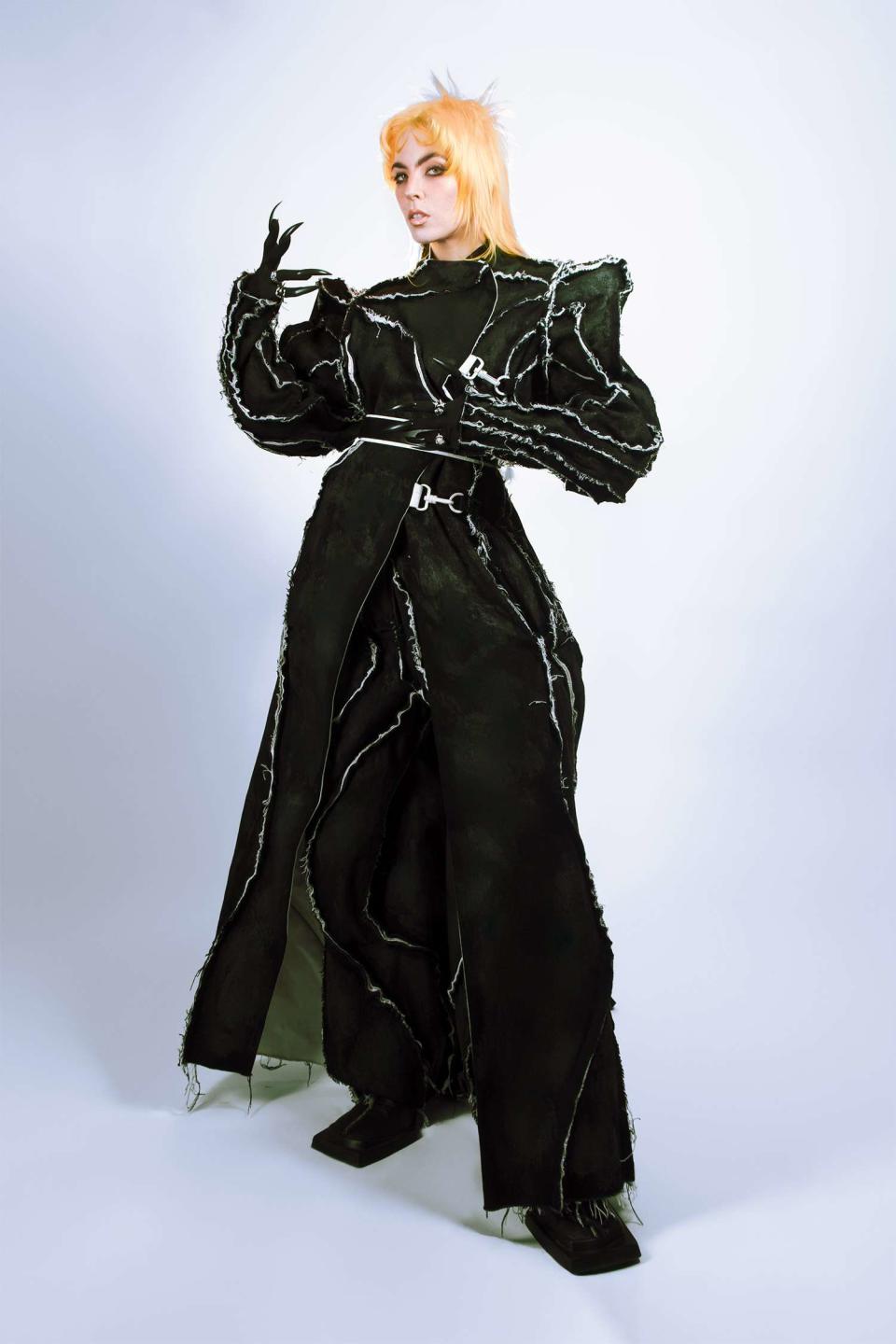
Kaio Cesar
Dorian ElectraIn the age of social media, the definition of celebrity has become blurry. Followers are the new fans, and their idols — musicians, actors, politicians or everyday individuals — are accessible with a few clicks. What does that mean for society?
Dorian Electra ponders the thought on their new album Fanfare, released Friday, which explores the social dynamics of modern-day fame through informative, yet tongue-in-cheek electro-pop songs about parasocial relationships, capitalism and how they interact with fame.
Of course, the 31-year-old musician is also looking to build their own career, participating in many of the same topics discussed throughout the album. "Everything that I do, in this record especially, is all about embracing contradiction and hypocrisy, critiquing things and then getting right up and doing that exact thing," Electra (who identifies as genderfluid and uses they/them pronouns) tells PEOPLE. "People might say [Fanfare is] a critique, and I would be like, 'No, it's also a celebration.'"
Education has always been at the root of Electra's art. Growing up in Houston, they were introduced to the arts through musical theater but started making their own songs and music videos in high school for academic projects, rather than the standard essay or Powerpoint presentation formats. "I was really shy at first, but I fell in love with performing," they recall.
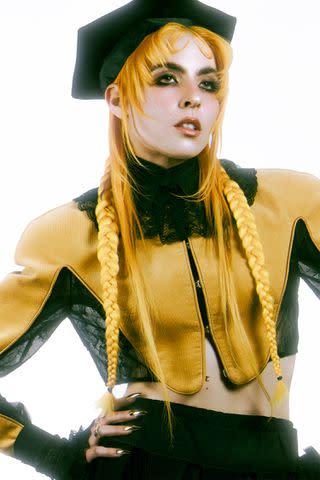
Kaio Cesar
Dorian ElectraThey carried that approach into college, where they studied philosophy, thinking music wasn't a "practical" life route but eventually wanting to combine both passions. After leaving school, Electra was commissioned by online publication Refinery29 to make a series of music videos about the histories of drag, high heels, vibrators and the clitoris in 2016.
Around that time, Charli XCX caught wind of their work and recruited them to feature on 2017's "Femmebot" with Mykki Blanco, which effectively launched Electra's pop career. "That really opened up so many doors for me," says Electra, who's since cultivated a devoted fanbase through intriguing albums with in-depth concepts: 2019's Flamboyant about gender, sexuality and toxic masculinity as well as 2020's My Agenda, which looked into incelism and the rise of the alt-right.
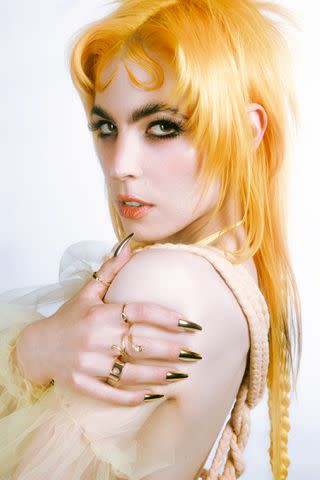
Kaio Cesar
Dorian Electra"My goal has always been using pop music as a medium to express deeper issues, whether it's about gender identity, politics, social media or what have you," they explain. "I just love making those ideas accessible to people."
Around two years ago, the idea for Fanfare came about as Electra observed how fame has become more "relatable" than ever since the rise of social media, which makes it possible for anyone to influence others.
"You have fans to please, people that might get mad at you and all of the highs and lows of seeking validation from others through your persona. That is no longer reserved for celebrities," they say. "You might be a doctor, and you're like, 'I have to get a TikTok to be successful now.'"
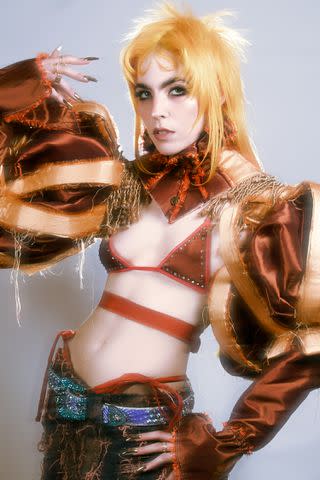
Kaio Cesar
Dorian ElectraRelated: Ron DeSantis Calls Trump Supporters ‘Listless Vessels’ Ahead of First Republican Debate
Electra cites people like former President Donald Trump with benefitting from the ability to organize groups to participate in a type of fandom generally reserved for artists. "His supporters, they're stans. I don't know if they have a name like 'Barbz' or whatever, but I mean, girl, he has a stan army," they joke. "It's the same kind of obsession."
Fanfare, inspired by albums like David Bowie's Ziggy Stardust and Lady Gaga's The Fame, features songs written from all different perspectives surrounding the subject of fame. Opening track "Symphony" finds Electra begging for fans, while "Idolize" is about a fan's obsession with someone else and "Manmade Horrors" pokes fun at the cheap, "hilariously unnecessary" merchandise sold to commodify such relationships.
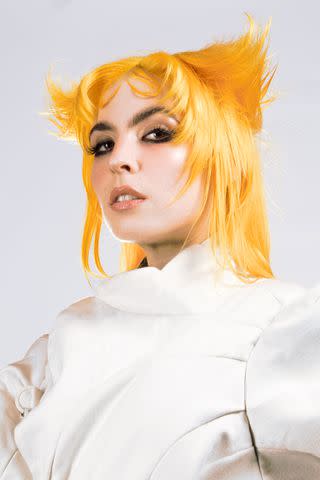
Kaio Cesar
Dorian ElectraThe record may look at the bigger picture, but it's also semi-autobiographical. An independent artist, Electra sells music, concert tickets and merchandise to make a living, and they've gone through periods of equating follower counts with success. "I have those same desires and urges," they admit, stressing the importance of self-awareness in the entertainment field.
"To be a celebrity is so psychologically f---ed up. It's so bizarre and weird and not normal," says Electra. "You have to have good perspective on it, or you become either a horrible tyrant or have a breakdown."
The goal of Fanfare isn't for listeners to stop seeking connection with people they admire, but more for them to think about why they do so and consider the implications of diving too far into one-sided relationships online. "If there's one takeaway from my record, it's that fandom is the new religion in our capitalist society," declares Electra.
For more People news, make sure to sign up for our newsletter!
Read the original article on People.

